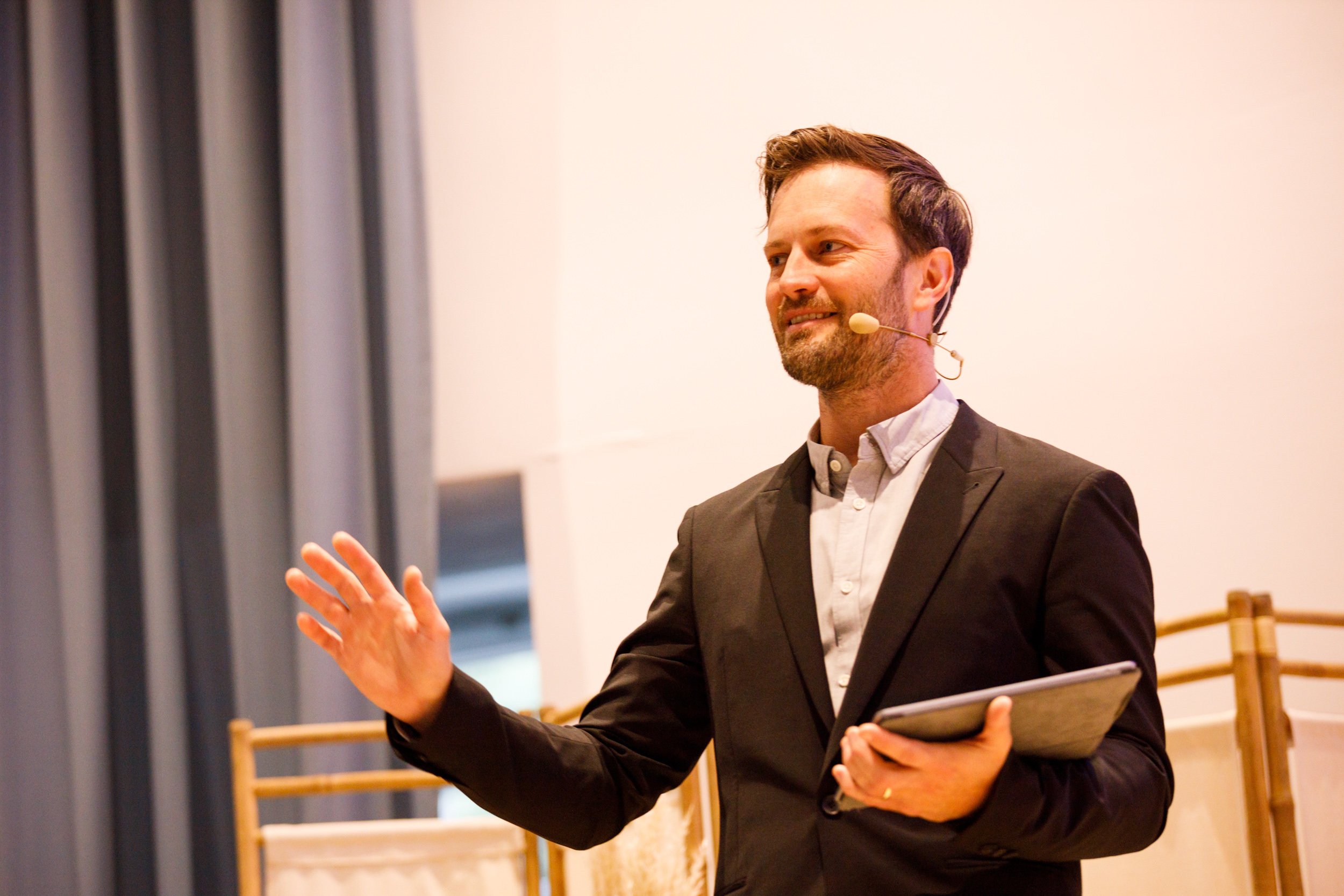When you think of the prominent advocates of the Berlin tech startup ecosystem, there is one name you cannot miss- Silicon Allee. Co-founder and CEO Travis Todd likes to think of Silicon Allee as the unofficial welcoming committee for Berlin’s newest entrepreneurs and tech employees. On the sidelines of AsiaBerlin Summit 2021, we caught up with Travis. We chatted with him about the unique Berlin startup ecosystem and their recent initiative of connecting Berlin to Japan. Here are the edited excerpts:

What makes you interested in Asia as the founder of Silicon Allee?
This has been our 10th year at Silicon Allee- so this is our decade of connecting Berlin with the rest of the world. I think Asia has always been a little bit of a mystery. The Berlin ecosystem sees Asia as a market where they can expand, but there’s a fundamental cultural disconnect. And vice versa! There’s still great respect for the German Mittelstand and the industry here– that Asian startups want to connect to. Hence, having programs like AsiaBerlin is essential to merge the cultural divides. Unfortunately, I haven’t seen as much innovation going back and forth as I would hope. On the other hand, you have delegations that regularly come to Berlin and explore. I’m sure that as we grow closer together and more and more dialogue happens, there’ll be more connectivity and economic activity between the two regions.
Why do you think Berlin should be a destination for startups from Asia to look at when they want to expand in Europe? What do you think are Berlin’s exciting aspects to finding a startup?
Berlin is the startup capital of Europe. I’ll say that, and others may argue with me, but it definitely is, in my view. That’s why I’ve been working here for over a decade. It’s a great city because it is international. It’s very cosmopolitan; half of the Berlin tech scene is non-German. So it’s a clear point of entry for internationals to get involved in what’s happening in Europe. It’s a great place to expand too. There are networks like Silicon Allee, but hundreds of others even specialize in specific geographies and industries. Startups can connect to it, so it’s a straightforward landing pad for companies looking to come to Germany and Europe in general.
Does Silicon Allee have any initiatives to build synergies between German and Asian startups?
Yes, Silicon Allee has done a few things in the past to connect Berlin and Asia. We’ve hosted delegations in our space, done tours around the city, and introduced people to the startup ecosystem. But that’s been small. We’re excited about a program we’re just now launching called our Residency Programme, which provides a soft landing for companies looking to scale into Berlin. We’re starting with some Japanese companies that we have already onboard everything from battery production out of sustainable materials to medical technologies that are looking to enter the German market. We’re trying to help them, understand the German culture, meet German investors and mentors and learn about what it would mean to expand their business to Germany. So that’s something we’re excited about.
What do you think you would look for If you wanted to invest in a company from Asia? What are the two or three key aspects that you would look for that a startup must have to make it in Berlin?
In any startup investment, it’s about how innovative is the idea? Is there a unique selling point that makes this technology better than anything else on the market, and then it’s the team. How passionate are they? How driven are they? What’s their background? Are they going to stick with this project for a long time through the thick and thin of running a startup? So it’s an objective character judgment on the team and their commitment to the idea and background. But also think it’s imperative to find that niche where your product stands out from others and can quickly be brought to market and have innovative ideas about how you can bring it to market. That’s also a really crucial point, especially about companies expanding to Germany and Spain to Europe, understanding the market, understanding how may be going to market here is different from going to market where they’re from. So really have a clever idea about how to do that. It’s also, I think, one of the main selling points for me as an investor in companies.
How do you think a platform like AsiaBerlin can help connect the startup ecosystems of Asia and Germany or Berlin? How do you think that can be achieved?
Connecting Berlin and Asia through a platform like the AsiaBerlin Summit program is one of the best ways to connect these ecosystems. I’m a big believer in connecting people and giving them the place and the purpose. I’m a big believer in connecting people and bringing them together, discussing topics and networks, and having the freedom to be innovative together. And I think especially given the connections between Asia and Berlin, and Germany, in general, the potential to deepen these relationships and learn from each other. So a format like the AsiaBerlin Summit is a great opportunity to meet these people that maybe you wouldn’t necessarily meet in your day-to-day business. So it’s really great to bring them all together and have someone like the Organising Committee here bringing all these different minds together to discuss these ideas.
Want to be updated on all the fun we are having at AsiaBerlin? Follow us on Linkedin, Instagram, and Twitter for regular updates on all AsiaBerlin activities.



